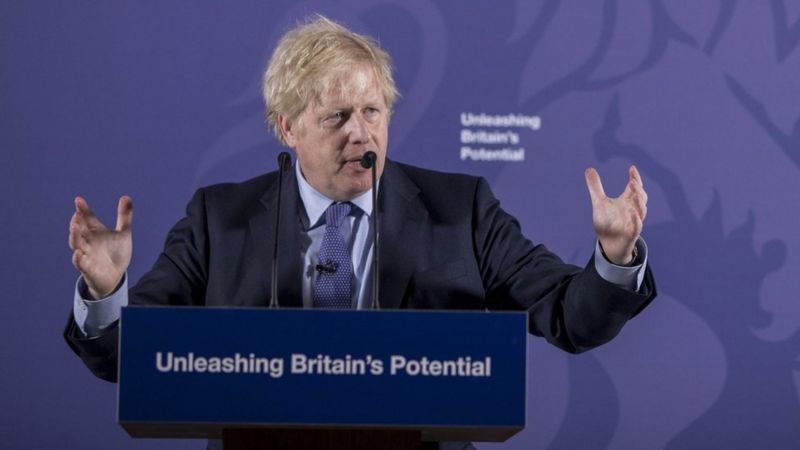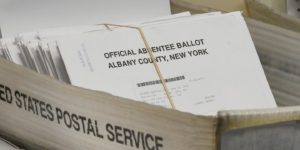
If there was ever a question that the U.S. and U.K. are relatives, the matching ineptitudes of the President and Prime Minister can put that debate to rest. Prime Minister Theresa May’s resignation was welcomed by many of her political enemies and allies as a consequence of her Brexit failures, but Boris Johnson has been doing much much worse. Brexit talks have ramped up again as Johnson and the President of the European Commission prepare to finalize their trade relationship for 2021. Farming and fishing debates have incited protests from animal welfare activists, farmers, and the Belgian ambassador.
I have to admit a bit of a love for the follies of British bureaucracy and politics. One of the most powerful empires of the 19th and early 20th centuries engaged in a silly/terrible nationalist policy decision leading to massive economic damage done to themselves. How civilized!
Now for a little recap. Prime Minister Boris Johnson campaigned on the promise that he would get Brexit enacted on January 31 of 2020 without sacrificing British interests. He had been a fervent critic of PM Theresa May: claiming that she had delayed the British’s dream for more freedom from the E.U. and that she was making too many concessions for the Brexit agreement. Having been a boisterous proponent of the “Leave” campaign —Brexit — back in 2016, he has been tactless in his public appearances and relationships with other world leaders and heightened the sense of British nationalism throughout the country.
Now Johnson may have delivered his campaign promise: Brexit day was marked as promised on the 31st of January, but this exit from the E.U. didn’t include an exit from the customs union and single market with the E.U. The economic exit will happen at the end of the year, and without a long-term trade agreement, the British’s relationship will be set by default World Trade Organization guidelines. This would mean high tariffs on British exports throughout the E.U., likely also prompting the British to set tariffs on E.U. products and causing major damage to British businesses as well as traffic bottlenecks at the borders.
To develop a long term economic relationship with E.U. countries and avoid all this trouble, Boris Johnson has set a deadline for agreement on a trade deal by October 15. Most E.U. negotiators ignored the yet another deadline the British have set, knowing that it will likely come and go without repercussion. However, claiming “it’s up to our friends and partners to be common-sensical,” PM Johnson pushes the blame onto E.U. negotiators and state leaders to make concessions and get the deal done before the deadline.
Over the past couple weeks, the trade talks in Brussels, with top E.U. negotiators, and with E.U. state leaders have been going terribly (and hilariously) wrong. Most poignantly ridiculous: The Belgium Ambassador’s invocation of King Charles II’s ancient treaty. Back after the decapitation of his father, King Charles granted “eternal fishing” rights to 50 Flemish Fishermen in 1666. Confusing some, amusing others, it was a much needed joke over a very very tense situation.
The three sticking points of these trade talks have been quotas over English fishing waters, “level-playing field rules,” and an enforcement mechanism for the agreements settled on between the U.K. and E.U. so legal action could be taken if necessary.
The fishing waters have certainly been most contentious considering the British’s relationships with the French. President Macron of France needs to set a hard line in defense of his country considering domestic politics and dealing with the nationalist Marine Le Pen. The French European affairs minister even stated that they would rather accept a no deal scenario than give up the interests of their fishermen. This topic was fervently discussed in Brussels, and a consensus was not reached.
The “level playing field rules” became more of a domestic issue in addition to a major concern from other E.U. states that repealing regulations concerning workers’ rights, environmental regulations, or state aid would give their companies an unfair advantage in the E.U. market. While on the whole, the British’s very intention by voting for Brexit was to have the leeway to undo some of those regulations, protests have been spurred on about animal welfare regulations and food safety.
Now the third sticking point, a mechanism with which to solve any conflicts between the E.U. and U.K. is most concerning when considering an immediate context: Johnson has already introduced legislation that has overridden previous agreements concerning North Ireland. As a violation of international law, the E.U. has already brought legal action against Britain, and this has served as a greater example of why Germany has pushed so hard for a framework to resolve conflicts — a legal enforcement mechanism. Germany wants this mechanism not in just the context of North Ireland, but to resolve any potential antitrust issues. Chancellor Merkel, intent on securing her legacy positively before she leaves office, has a vested interest in seeing this issue resolved.
On the 16th of October, I opened up the Guardian’s Brexit webpage and was delighted to see a multitude of headlines: Boris Johnson’s tough talk rhetoric to “prepare for a no-deal brexit”, “Merkel urges Johnson not to to abandon Brexit negotiations”, “UK economy not ready for no-deal Brexit, say business leaders”. Boris Johnson made grandiose threats against the members who have more to lose domestically conceding their trade positions than they do in their international standing. Negotiations are going to resume and Johnson’s threats were indeed baseless! Either way it didn’t make front page news because this Brexit debacle is in its 4th year, baseless British threats have become plentiful, and somehow the incompetence of our own president beats out their PMs and Commission leaders for the headlines.



